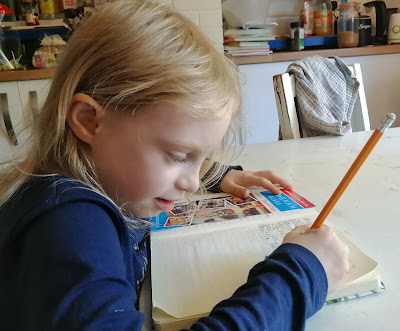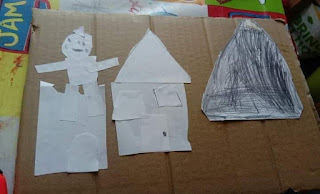A Definition Of Physical Education
Physical education can be a loaded topic within the home schooling environment. It is not stated by law within the UK that it has to be included as part of a curriculum or be part of a childs life, where in some states of America it is mandatory. I have heard varying opinions from UK based parents on its place within a childs life. I will be discussing physical education options for physically able bodied children within this blog.
It is easy to cultivate a love for a sport from an early age, and it can be a wonderful bonding activity for families, as well as a great way for your child to make friends and learn important social skills. There will be parents who strongly encourage ballet, swimming, football, gymnastics, martial arts, tennis, cricket for example and that is awesome, I cannot wait for it to be the right time for my children to explore some of these options. There are parents however who may not be able to afford this route, or may not be sporty themselves or may not see a need for official sports, but yet may be concerned about the physical education side of home schooling.
I argue strongly against comparing physical education at home to the PE experience found within a school environment. Negative performance pressure is immediately removed at home, your child doesn't have the fears of sharing a dressing room, of being picked last, or being the worst on the team, being forced to participate in a sport they hate, or having to maybe confront fears they have in an unnatural environment. There is little choice given to the children at school. It is a class that can invoke very strong opinions amongst children, it can be the best class of the week, it can be the child's worst nightmare.
So I would advocate in its place simple exercise instead if you're not a sporty family. Take the concept of physical education one step at a time.
The first thing to consider is the skills taught and practiced within the Physical Education remit and first decide to what extent are they necessary or required in your childs life. If your child is physically able, the basic skills include walking, running, jumping, skipping and climbing. When they are little they will more often than not gravitate towards at least one of these. There is no rule however your child has to learn to jump over a horse, climb to the top of a tall gym under pressure, or run cross country. Explore the skills in a way that works for your family. Exercise can be found all around us and there is no better example of a social environment which naturally teaches, encourages and involves all of the above skills then a local playground or a soft play warehouse. They are designed to promote exercise for young children and they are a fantastic start. Children will learn the same physical, team work and building, sharing and communication skills with their peers, just like any other child would learn in school, however it is on their terms. They are in control of the environment.
Family nature walks, bike rides, swimming in the pool whilst on holiday or running on the beach is healthy exercise. It can be as expensive or inexpensive as you like. You certainly do not have to recreate a mini school gym at home. However there are great options out there if you do wish to have equipment. Keep an eye out on local selling sites and you never know what physical educational gem you may find that you may have never even considered before. Maybe if you're upgrading your child's bike or scooter etc consider leaving it free outside your home, so another child could treasure it and have a chance to learn skills that may not have been an option for them up to then.
Our children personally have been fortunate from multiple generous family members, as well as charity funds, who have helped us achieve an environment which promotes exercise at home. This was a personal goal for Leighton and I, faced with children who's health can prevent them from always accessing the soft plays, trampoline parks and playgrounds that they love. We have faced this challenge head on and not given up in providing the children with a healthy environment. Exercise is personally very important to us and we were determined to instil a routine of movement into the children from the very beginning. The girls naturally moved from the very beginning, and we just embraced their desires.
Sophia before she could walk would bounce up and down on her Daddy's knee moving and responding to music. She was a born climber and has a natural ability to perform tricks. She has a lot of energy to expel every day and needs to keep active and she embraces it full on. She is curious, careful and confident and she has the environment where she is encouraged to push her boundaries on equipment, because we are there alongside for support and guidance. It is training her for when the day comes when she can enter clubs of her choice, which we strongly believe will involve gymnastics, swimming, wall climbing and martial arts.
Kira moved as soon as she sat up by herself, however her form of exercise took on a different format as she also has a specific need she requires from it. Just as Sophia needs to rid that excess energy from her body, Kira also instinctively knows what she needs to gain from exercise. I'm talking here about autistic stimming. Not every child presents with stims and there are many different types of stims, some have more positive affects on the person than others. Kira’s specific stims involve rocking and spinning. They are innately a part of her and we help her to embrace them and in turn she is altering her need for them as she is growing up, because she feels 100% safe in the home environment to explore them. They are a form of exercise. She rocks back and forth a great deal of the time whilst sitting which is her happy and comforting place, watching TV. She rocks back and forth when on her feet, when she is feeling more anxious, usually when she's trying to explain herself and share her feelings, or she's thinking very hard about a response. She also spins incredibly fast on the spot without getting dizzy. She has different reasons for doing it and she goes at corresponding speeds to reflect this. She is just as amazing to watch as it is seeing Sophia turn the living room into an obstacle course and run, climb around the room. Kira is spellbinding when she is holding an ipad and she's spinning so fast she's a blur and yet she will be working on an educational app and you know she's getting the answer right because of the correct noise will ding every few seconds. We introduced her to a baby swing and roundabout at a local playground and she loved them, wanting to spend all visits on these apparatus. We now own a swing and she loves swaying back and forth for hours, as it provides her with the sensations she requires to keep happy and calm. She also loves performing tricks and having mad moments running round, but that type of exercise is not a deep rooted essential need within her, unlike Sophia.
Other ways we try to naturally incorporate exercise into daily routine is choose educational presenters who advocate keeping fit whilst learning. One does not have to exclude the other. Jack Hartmann, Ryans World and Patty Shukla all inspire their viewers to jump off the sofa and move around whilst learning facts. We also have specific exercise videos set aside on their educational playlist which are children running through platforming games and the children will mimic them running, jumping and crouching in rhythm. We have Ring Fit on the Switch console which we play as a family, keeping fit through exercise video games. Exercise is also great for controlling emotions, and whether it is an outlet like a punching bag at home, or a formal martial arts class, they can greatly aid mental health.
In conclusion, I do not believe that the subject of Physical Education has to necessarily elude to the exercise in and of itself. I interpret this subject title to also incorporate the education of the physical body. Children should be taught from a young age to respect their bodies, to take care of them and appreciate that bones can be broken and you only get one good back. Any sport or activity should be talked about, taught properly, particularly if it is a physical activity which can cause repetitive strain or risk damaging a part of the body. My girls as young as they may be, are learning to listen to their body and alter their actions according. My eldest has just called me, as I write this, to say that her back aches from too many tricks and trampolining yesterday so she's taking an easier day today on the active front. She enjoyed gently swinging on the swing instead. This education is just as important in my mind, children should learn about the physical toll of the activities, how to properly warm up and cool down and prepare their bodies. Likewise we teach our girls the positive effect exercise has on the body, looking at the heart to the mind. There is a harmony to be found when you look after your body, and exercise plays a vital part in that.







Comments
Post a Comment